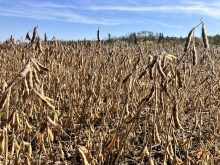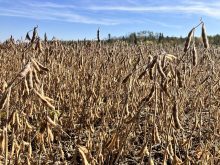Routine Canadian canola exports to Japan will likely be disrupted in the aftermath of the massive earthquake and tsunami that hit Japan March 11, according to market participants.
With the potential for a nuclear meltdown now dominating the headlines the export situation to the country remains uncertain, but traders generally anticipated a return of Japanese buying in time.
Japan is normally a steady customer for Canadian canola, purchasing about 1.9 million to 2.1 million tonnes annually, according to government data. As of the end of January, Japan had imported about 1.2 million tonnes of Canadian canola during the 2010-11 crop year to date, according to Canadian Grain Commission data. That compares with one million tonnes at the same point the previous year.
Read Also

Wheat breeding system no longer works, Canadian Wheat Research Coalition report says
A Canadian Wheat Research Coalition report, published Feb. 26, says the status quo is not an option for Canada’s wheat breeding system. It must be transformed, by farmers.
In the aftermath of the disaster, ports and processing plants in Japan were closed. Ports north of Tokyo remain closed, with some expected to stay that way for months or more, while shipping operations have resumed south of Tokyo.
“They don’t have the ability to produce what they need,” said Ken Ball at Union Securities in Winnipeg. There will be a short-term reduction in demand for canola, he said, but in the longer-term Japan will need to bring in food products. If oilseed processors in the country are damaged, it will likely lead to a shift in demand from canola seed to already-processed canola oil.
“In the short term, buying of canola will just about halt, but very quickly they may need to start buying canola oil which may translate into the same kind of demand out of Canada,” said Ball.
“Ultimately there will be demand to replace the lost demand in the short term, but a lot of buyers will be temporarily shutting down as they assess the situation,” said Ball.
Canada’s domestic crush is currently running at about 82 per cent of capacity, which means there would be some room for domestic processors to process the canola here and send the oil to Japan, rather than the seed.
Representatives of the Canola Council of Canada were in meetings on Monday and unable to comment directly on the Japanese situation. Council president JoAnne Buth did relay a message that it was still too early to tell what the impact of Japan’s earthquake will be on the Canadian canola sector.















